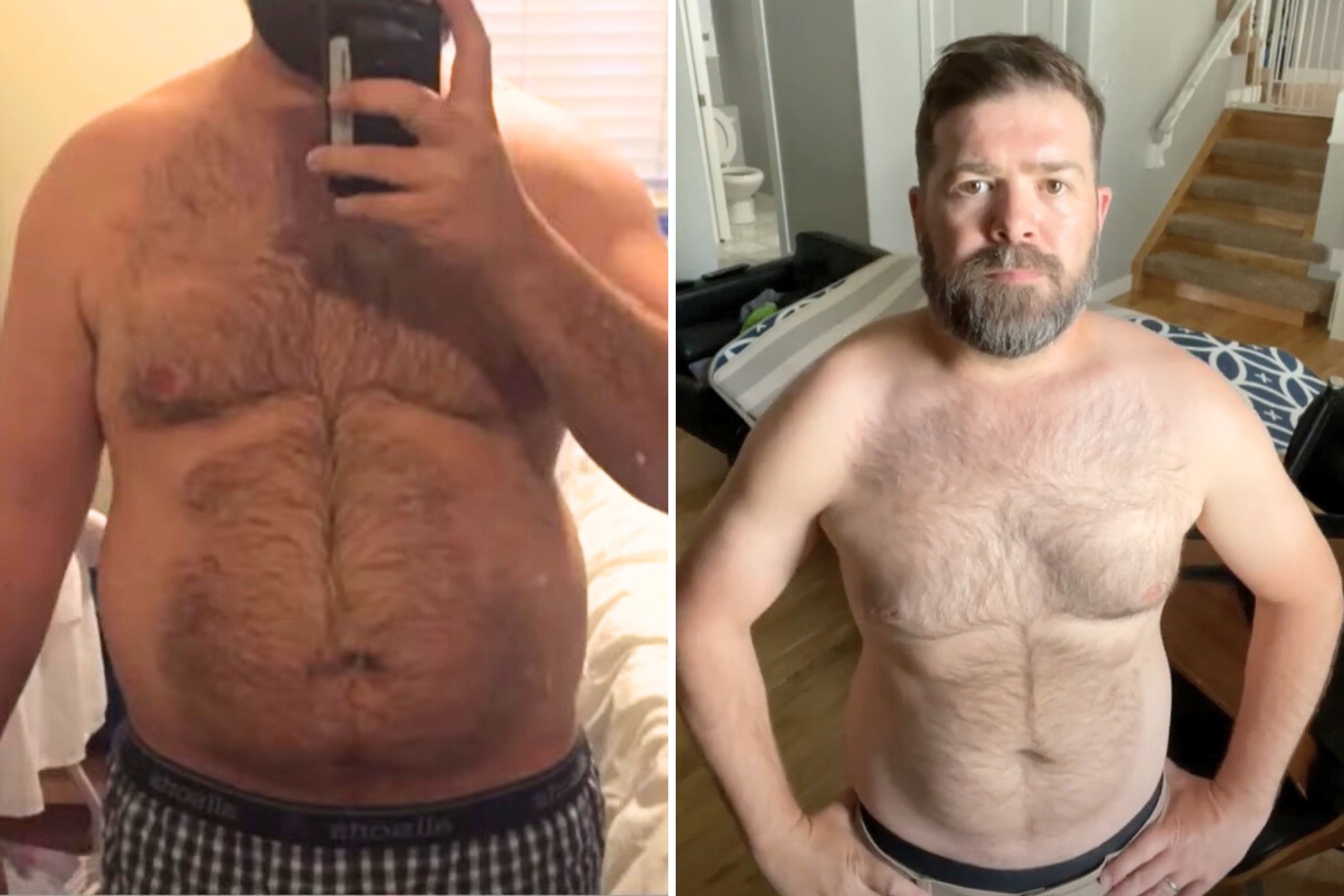
I DID THE OMAD DIET FOR A YEAR AND LEARNED TO CONTROL MY HUNGER
Back in late 2022, I started doing intermittent fasting, where you fast for long periods of the day and only eat within certain hours. Specifically, I tried the OMAD—one meal a day—approach to intermittent fasting.
I'm a father of three and throughout the last decade, I have struggled to find a balance between my family life and responsibilities and my health.
I was always good at working out and fairly active but my problem wasn't the gym. It was the fridge.
At my low point, my weight ballooned out to an unhealthy 206lbs, which for a shorter guy is noticeably portly. I felt I was unhealthy and wanted to improve the situation for myself and to set an example for my family.
So my motivation was high, and I was very disciplined, especially in terms of snacking and what I ate during my eating windows. By the end, I had lost around 35lbs.
Along the way, I've learned a lot about hunger; specifically, how to control it.
Much of it is really an emotional response. Often, we eat because we think we're hungry. While there are hormonal responses that trigger hunger and cravings, I believe much of it boils down to our psychology and mental strength.
I've found several methods to avoid hunger while fasting, which is a significant challenge that many fasters face. The key strategies include staying busy and active and ensuring meals are planned in advance.
This planning is crucial to prevent constant thoughts about food throughout the day. It's particularly challenging when you're surrounded by food, such as during grocery shopping or in places where food is readily available.
These situations can trigger hunger, so being prepared and having a plan is essential. If you're going out, planning your meal helps to avoid surprises that may trigger cravings or temptation.
Another key lesson I've learned during fasting is the necessity of being calorie-conscious and eating healthily. Many practice "dirty OMAD," where they eat fast food or whatever they feel like, and still lose weight.
This is because they're achieving a caloric deficit. Fasting periods help in coaching the body to burn stored fat as well.
I'm not suggesting that "dirty OMAD" is inherently problematic. However, the issue with this approach is that it can be challenging to control the upper limit of calorie intake, especially with a longer eating window. The temptation to overeat is greater.
I believe the biggest reason I lost 35 pounds and then stalled at around that is my management of after-meal snacks that added sneaky calories. This is a common issue in many diets that can stall weight loss efforts and impact fasting.
These include snacks like chocolate, chips, and others, which I often consumed after my main meal. Despite fasting every day, these snacks, especially during my four to six hour eating window at my laziest times, were significant.
Having those additional snacks contributed to the calories I needed to maintain my weight rather than lose more. So it's crucial to remain mindful of calorie intake even when you're fasting.
Now, I'm significantly lower than my starting point and comfortably at a weight where I don't need to overly focus on my diet or do additional exercise.
The idea of having a cheat day or an off day doesn't really enter into my thoughts anymore. I know that I can eat this way and maintain a weight I'm comfortable with.
Would I like to be a little lighter and leaner? Yes, absolutely. But what I've learned from doing intermittent fasting is that it's a remarkably effective tool for further weight loss.
My goal for the next 12 months is to see how far I can take this weight loss and to get really serious about it.
In my early 20s, at what I call my "peak condition", it seemed effortless to sustain a healthy weight and athletic physique. I weighed around 165lbs, which is going to be my target weight, but I'm setting a realistic timeframe.
I plan to get there by losing a further 15 to 20lbs of fat in the next 365 days through my OMAD approach and keeping it off.
To achieve this, I will adopt a stricter approach to fasting this time, particularly in terms of consistency, to achieve greater results. I fasted for over a year, but there were some cheat days with shorter fasts. For example, I had breakfast on about 10 days.
I generally adhered well to the fasting regimen. But, moving forward, I plan to really focus on the quality of what I eat during my eating window, ensuring that my calories are from quality sources, primarily whole foods and protein.
That's how I had started. I initially focused on whole food sources and a high-protein diet, which led to my most significant success. Therefore, I plan to continue with this approach.
Overall, though, I was really satisfied with the weight loss achieved over the year.
Joel Hunter is a lifestyle vlogger on YouTube.
All views expressed are the author's own.
Do you have a unique experience or personal story to share? Email the My Turn team at [email protected].
Related Articles
- A DNA Test Changed Everything I Knew About My Family
- I Went on a Date With So Many Red Flags. He Couldn't Answer My Question
- I Tried Everything to Heal My Acne. One Change Made a Huge Difference
- I Was Pregnant and Excited. Then I Faced a Devastating Decision
- The Doctor Brushed Off My Symptoms. He Missed a Life-Threatening Problem
- I Tried Walking 10K Steps for 30 Days. The Results Were Confusing
- I Went for an Ultrasound. The Doctor's Comment Shook My World
- 'People Don't Believe I Have Cancer'—Woman Challenges Patient Stereotype
- Florida Man Missing After Kayak Found Broken in Two: Coast Guard